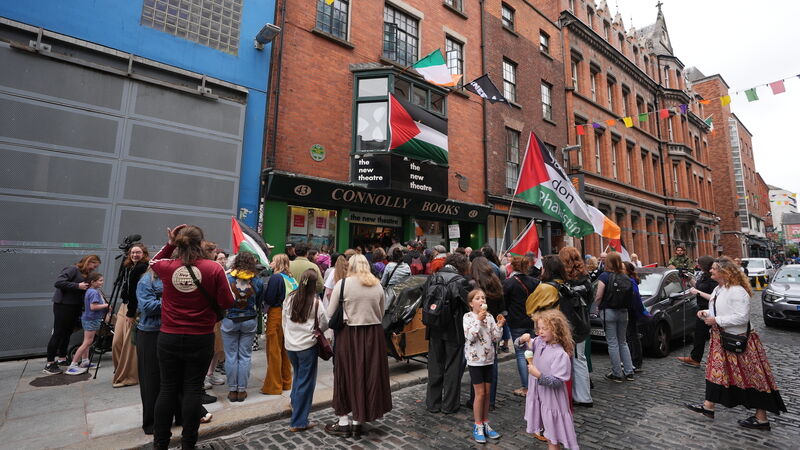Irish Examiner view: Kneecap and the debate over free speech

People attend a music session in Dublin's Temple Bar area to show solidarity for Kneecap's Liam Og O hAnnaidh after he appeared at Westminster Magistrates' Court in London. Picture: Niall Carson/PA













